Tag #continuation
151 papers:
 SEFM-2019-BartocciMMMN #automation #modelling
SEFM-2019-BartocciMMMN #automation #modelling- Automatic Failure Explanation in CPS Models (EB, NM, LM, CM, DN), pp. 69–86.
- ICFP-2019-CongOER #compilation
- Compiling with continuations, or without? whatever (YC, LO, GME, TR), p. 28.
- ICFP-2019-TimanyB #concurrent #relational #source code #verification
- Mechanized relational verification of concurrent programs with continuations (AT, LB), p. 28.
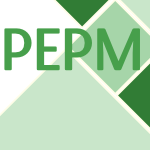 PEPM-2019-Lu #control flow #obfuscation
PEPM-2019-Lu #control flow #obfuscation- Control flow obfuscation via CPS transformation (KZML), pp. 54–60.
 VMCAI-2019-GermaneM #analysis #automaton
VMCAI-2019-GermaneM #analysis #automaton- Relatively Complete Pushdown Analysis of Escape Continuations (KG, MM), pp. 205–225.
- ICFP-2018-CongA #dependent type
- Handling delimited continuations with dependent types (YC, KA), p. 31.
 CIKM-2018-FerroLM0 #education #learning #rank
CIKM-2018-FerroLM0 #education #learning #rank- Continuation Methods and Curriculum Learning for Learning to Rank (NF0, CL, MM, RP0), pp. 1523–1526.
 PEPM-2018-AsaiU
PEPM-2018-AsaiU - Selective CPS transformation for shift and reset (KA, CU), pp. 40–52.
 POPL-2018-BowmanCRA
POPL-2018-BowmanCRA - Type-preserving CPS translation of Σ and Π types is not not possible (WJB, YC, NR, AA), p. 33.
 CASE-2018-MaierUG #automation #implementation #multi #performance
CASE-2018-MaierUG #automation #implementation #multi #performance- Efficient Implementation of Task Automation to Support Multidisciplinary Engineering of CPS (RM, SU, MG), pp. 1388–1393.
 FSCD-2017-HillerstromLAS
FSCD-2017-HillerstromLAS - Continuation Passing Style for Effect Handlers (DH, SL, RA, KCS), p. 19.
- ICFP-2017-DavisMS #functional
- No-brainer CPS conversion (functional pearl) (MD, WM, OS), p. 25.
 CIKM-2017-ShiLC #estimation #rank
CIKM-2017-ShiLC #estimation #rank- Tensor Rank Estimation and Completion via CP-based Nuclear Norm (QS, HL, YmC), pp. 949–958.
 PLDI-2017-MaurerDAJ #compilation
PLDI-2017-MaurerDAJ #compilation- Compiling without continuations (LM, PD, ZMA, SLPJ), pp. 482–494.
 CASE-2017-NingHHG #3d #approach #process
CASE-2017-NingHHG #3d #approach #process- A cloud-supported cps approach to control decision of process manufacturing: 3D ONoC (ZN, WH, XH0, XG), pp. 458–463.
 TAP-2017-FazekasHSB #quantifier
TAP-2017-FazekasHSB #quantifier- Skolem Function Continuation for Quantified Boolean Formulas (KF, MJHH, MS, AB), pp. 129–138.
 FSCD-2016-Blot #modelling
FSCD-2016-Blot #modelling- Classical Extraction in Continuation Models (VB), p. 17.
 GPCE-2016-PhilipsKMR #javascript
GPCE-2016-PhilipsKMR #javascript- Dependence-driven delimited CPS transformation for JavaScript (LP, JDK, WDM, CDR), pp. 59–69.
 ICFP-2015-LeF #transaction
ICFP-2015-LeF #transaction- Partial aborts for transactions via first-class continuations (ML, MF), pp. 230–242.
 RecSys-2015-JannachLK #generative #music
RecSys-2015-JannachLK #generative #music- Beyond “Hitting the Hits”: Generating Coherent Music Playlist Continuations with the Right Tracks (DJ, LL, IK), pp. 187–194.
 DAC-2015-WolfF #architecture #question #what
DAC-2015-WolfF #architecture #question #what- What don’t we know about CPS architectures? (MW, EF), p. 4.
 CBSE-2014-BuresHP #architecture #modelling #product line #runtime
CBSE-2014-BuresHP #architecture #modelling #product line #runtime- Strengthening architectures of smart CPS by modeling them as runtime product-lines (TB, PH, FP), pp. 91–96.
 ICFP-2014-DownenA #composition #semantics
ICFP-2014-DownenA #composition #semantics- Compositional semantics for composable continuations: from abortive to delimited control (PD, ZMA), pp. 109–122.
 ICML-c1-2014-LinX #adaptation #optimisation
ICML-c1-2014-LinX #adaptation #optimisation- An Adaptive Accelerated Proximal Gradient Method and its Homotopy Continuation for Sparse Optimization (QL, LX), pp. 73–81.
 PEPM-2014-KerneisSH #named #performance #static analysis
PEPM-2014-KerneisSH #named #performance #static analysis- QEMU/CPC: static analysis and CPS conversion for safe, portable, and efficient coroutines (GK, CS, SH), pp. 83–94.
 PPDP-2014-DownenMAV #process
PPDP-2014-DownenMAV #process- Continuations, Processes, and Sharing (PD, LM, ZMA, DV), pp. 69–80.
 PPDP-2014-Ilik #normalisation #proving #tutorial
PPDP-2014-Ilik #normalisation #proving #tutorial- Proofs in continuation-passing style: normalization of Gödel’s System T extended with sums and delimited control operators: Distilled Tutorial (DI), pp. 55–56.
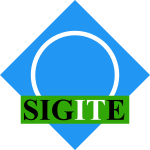 SIGITE-2013-RutherfoordRZY #health
SIGITE-2013-RutherfoordRZY #health- The 2+2 bachelor of applied science in health information technology (BAS-HIT): continuation of the 2+2 BASIT program (RHR, HR, CZ, MY), pp. 141–142.
 TLCA-2013-Schopp #interactive #on the
TLCA-2013-Schopp #interactive #on the- On Interaction, Continuations and Defunctionalization (US), pp. 205–220.
 ICFP-2013-DelbiancoN #algebra #hoare #reasoning
ICFP-2013-DelbiancoN #algebra #hoare #reasoning- Hoare-style reasoning with (algebraic) continuations (GAD, AN), pp. 363–376.
 FDG-2013-Schoenau-FogLLS #game studies #perspective
FDG-2013-Schoenau-FogLLS #game studies #perspective- Narrative engagement in games - A continuation desire perspective (HSF, SL, TL, MTSS), pp. 384–387.
 CSL-2013-Materzok #axiom
CSL-2013-Materzok #axiom- Axiomatizing Subtyped Delimited Continuations (MM), pp. 521–539.
 ICLP-J-2013-SchrijversDDW #prolog
ICLP-J-2013-SchrijversDDW #prolog- Delimited continuations for prolog (TS, BD, BD, JW), pp. 533–546.
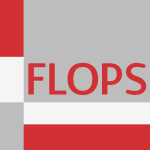 FLOPS-2012-TanakaK #call-by
FLOPS-2012-TanakaK #call-by- A Call-by-Name CPS Hierarchy (AT, YK), pp. 260–274.
 SEKE-2012-LiLCZJZ #adaptation #self #verification
SEKE-2012-LiLCZJZ #adaptation #self #verification- A HybridUML and QdL Based Verification Method for CPS Self-Adaptability (JL, BL, QC, MZ, SJ, XZ), pp. 239–242.
 SEKE-2012-ZhuLLCZJ #difference #logic #using #verification
SEKE-2012-ZhuLLCZJ #difference #logic #using #verification- HybridUML Based Verification of CPS Using Differential Dynamic Logic (MZ, BL, JL, QC, XZ, SJ), pp. 235–238.
 SIGIR-2012-AgichteinWDB #comprehension #predict
SIGIR-2012-AgichteinWDB #comprehension #predict- Search, interrupted: understanding and predicting search task continuation (EA, RWW, STD, PNB), pp. 315–324.
 PPDP-2012-Thielecke #functional #parsing #recursion #semantics
PPDP-2012-Thielecke #functional #parsing #recursion #semantics- Functional semantics of parsing actions, and left recursion elimination as continuation passing (HT), pp. 91–102.
 SAC-2012-BookGB #web
SAC-2012-BookGB #web- Process-aware continuation management in web applications (MB, VG, MB), pp. 717–724.
 ICFP-2011-AhmedB #multi #semantics
ICFP-2011-AhmedB #multi #semantics- An equivalence-preserving CPS translation via multi-language semantics (AA, MB), pp. 431–444.
 ICFP-2011-MaterzokB #type system
ICFP-2011-MaterzokB #type system- Subtyping delimited continuations (MM, DB), pp. 81–93.
 DiGRA-2011-Schoenau-Fog #game studies #process
DiGRA-2011-Schoenau-Fog #game studies #process- The Player Engagement Process - An Exploration of Continuation Desire in Digital Games (HSF).
 PEPM-2011-VardoulakisS #multi #stack
PEPM-2011-VardoulakisS #multi #stack- Ordering multiple continuations on the stack (DV, OS), pp. 13–22.
 PPDP-2011-BiernackaBL #type system
PPDP-2011-BiernackaBL #type system- Typing control operators in the CPS hierarchy (MB, DB, SL), pp. 149–160.
 SAC-2011-ParisiniM #branch #slicing
SAC-2011-ParisiniM #branch #slicing- Improving CP-based local branching via sliced neighborhood search (FP, MM), pp. 887–892.
 DATE-2011-LiuS #optimisation #performance
DATE-2011-LiuS #optimisation #performance- An efficient mask optimization method based on homotopy continuation technique (FL, XS), pp. 1053–1058.
 ILC-2010-YasugiKHU #recursion
ILC-2010-YasugiKHU #recursion- Managing continuations for proper tail recursion (MY, TK, TH, SU), pp. 65–72.
 OOPSLA-2010-McCarthy
OOPSLA-2010-McCarthy - The two-state solution: native and serializable continuations accord (JAM), pp. 567–582.
 PPDP-2010-AsaiK #functional #virtual machine
PPDP-2010-AsaiK #functional #virtual machine- Functional derivation of a virtual machine for delimited continuations (KA, AK), pp. 87–98.
 DAC-2010-Lee
DAC-2010-Lee - CPS foundations (EAL), pp. 737–742.
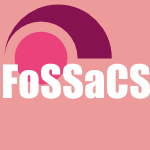 FoSSaCS-2010-EggerMS #calculus
FoSSaCS-2010-EggerMS #calculus- Linearly-Used Continuations in the Enriched Effect Calculus (JE, REM, AS), pp. 18–32.
 FoSSaCS-2010-Saurin #call-by
FoSSaCS-2010-Saurin #call-by- A Hierarchy for Delimited Continuations in Call-by-Name (AS), pp. 374–388.
 LICS-2010-Zeilberger #logic
LICS-2010-Zeilberger #logic- Polarity and the Logic of Delimited Continuations (NZ), pp. 219–227.
 ICFP-2009-McCarthy #automation #composition #rest #web
ICFP-2009-McCarthy #automation #composition #rest #web- Automatically RESTful web applications: marking modular serializable continuations (JAM), pp. 299–310.
 ICFP-2009-RompfMO #implementation #polymorphism
ICFP-2009-RompfMO #implementation #polymorphism- Implementing first-class polymorphic delimited continuations by a type-directed selective CPS-transform (TR, IM, MO), pp. 317–328.
 CC-2009-BieniusaT #how #monad
CC-2009-BieniusaT #how #monad- How to CPS Transform a Monad (AB, PT), pp. 266–280.
 FLOPS-2008-KameyamaY
FLOPS-2008-KameyamaY - Typed Dynamic Control Operators for Delimited Continuations (YK, TY), pp. 239–254.
 FLOPS-2008-Kobayashi08a #backtracking
FLOPS-2008-Kobayashi08a #backtracking- A New Translation for Semi-classical Theories — Backtracking without CPS (SK), pp. 210–223.
 ICFP-2008-Ley-WildFA #compilation #self #source code
ICFP-2008-Ley-WildFA #compilation #self #source code- Compiling self-adjusting programs with continuations (RLW, MF, UAA), pp. 321–334.
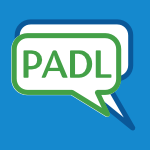 PADL-2008-GuzmanCHSR #implementation
PADL-2008-GuzmanCHSR #implementation- An Improved Continuation Call-Based Implementation of Tabling (PCdG, MC, MVH, CS, RR), pp. 197–213.
 POPL-2008-HerbelinG #approach #call-by
POPL-2008-HerbelinG #approach #call-by- An approach to call-by-name delimited continuations (HH, SG), pp. 383–394.
 TLCA-2007-KiselyovS #type system
TLCA-2007-KiselyovS #type system- A Substructural Type System for Delimited Continuations (OK, CcS), pp. 223–239.
 TLCA-2007-SantoMP #calculus #normalisation
TLCA-2007-SantoMP #calculus #normalisation- Continuation-Passing Style and Strong Normalisation for Intuitionistic Sequent Calculi (JES, RM, LP), pp. 133–147.
 ICFP-2007-Kennedy #compilation
ICFP-2007-Kennedy #compilation- Compiling with continuations, continued (AK), pp. 177–190.
 SAC-2007-YuY #distributed #workflow
SAC-2007-YuY #distributed #workflow- Continuation-passing enactment of distributed recoverable workflows (WY, JY), pp. 475–481.
 ICML-2006-ChapelleCZ
ICML-2006-ChapelleCZ - A continuation method for semi-supervised SVMs (OC, MC, AZ), pp. 185–192.
 PLDI-2006-ShiversM #composition #transducer
PLDI-2006-ShiversM #composition #transducer- Continuations and transducer composition (OS, MM), pp. 295–307.
 ICFP-2005-PettyjohnCMKF #stack
ICFP-2005-PettyjohnCMKF #stack- Continuations from generalized stack inspection (GP, JC, JM, SK, MF), pp. 216–227.
 PADL-2005-WangGL #code generation #logic #semantics #towards
PADL-2005-WangGL #code generation #logic #semantics #towards- Towards Provably Correct Code Generation via Horn Logical Continuation Semantics (QW, GG, ML), pp. 98–112.
 ICLP-2005-SneyersSD #optimisation
ICLP-2005-SneyersSD #optimisation- Guard and Continuation Optimization for Occurrence Representations of CHR (JS, TS, BD), pp. 83–97.
 FLOPS-2004-Hasegawa #call-by #linear #semantics
FLOPS-2004-Hasegawa #call-by #linear #semantics- Semantics of Linear Continuation-Passing in Call-by-Name (MH), pp. 229–243.
 ICFP-2004-AriolaHS
ICFP-2004-AriolaHS - A type-theoretic foundation of continuations and prompts (ZMA, HH, AS), pp. 40–53.
 ESOP-2004-Thielecke #call-by #morphism #polymorphism
ESOP-2004-Thielecke #call-by #morphism #polymorphism- Answer Type Polymorphism in Call-by-Name Continuation Passing (HT), pp. 279–293.
 CSL-2004-Kameyama #axiom
CSL-2004-Kameyama #axiom- Axioms for Delimited Continuations in the CPS Hierarchy (YK), pp. 442–457.
 ICFP-2003-KameyamaH #axiom
ICFP-2003-KameyamaH #axiom- A sound and complete axiomatization of delimited continuations (YK, MH), pp. 177–188.
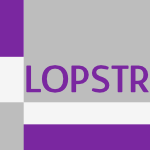 LOPSTR-2003-WangG #horn clause #semantics
LOPSTR-2003-WangG #horn clause #semantics- Continuation Semantics as Horn Clauses (QW, GG), pp. 176–177.
 POPL-2003-Thielecke
POPL-2003-Thielecke - From control effects to typed continuation passing (HT), pp. 139–149.
 SAS-2003-Thiemann #partial evaluation
SAS-2003-Thiemann #partial evaluation- Continuation-Based Partial Evaluation without Continuations (PT), pp. 366–382.
 SAC-2003-DhoogeGKMR #matlab #named
SAC-2003-DhoogeGKMR #matlab #named- Cl_matcont: A Continuation Toolbox in Matlab (AD, WG, YAK, WM, AMR), pp. 161–166.
 FoSSaCS-2003-Laird #game studies #semantics
FoSSaCS-2003-Laird #game studies #semantics- A Game Semantics of Linearly Used Continuations (JL), pp. 313–327.
 FLOPS-2002-Hasegawa #linear #monad #λ-calculus
FLOPS-2002-Hasegawa #linear #monad #λ-calculus- Linearly Used Effects: Monadic and CPS Transformations into the Linear λ Calculus (MH), pp. 167–182.
 OOPSLA-2002-Manolescu #workflow
OOPSLA-2002-Manolescu #workflow- Workflow enactment with continuation and future objects (DAM), pp. 40–51.
 PEPM-2002-BartheU #induction
PEPM-2002-BartheU #induction- CPS translating inductive and coinductive types (GB, TU), pp. 131–142.
 DATE-2002-BrachtendorfLLMF #using
DATE-2002-BrachtendorfLLMF #using- Steady State Calculation of Oscillators Using Continuation Methods (HGB, SL, RL, RCM, PF), p. 1139.
 ESOP-2002-Laird #exception
ESOP-2002-Laird #exception- Exceptions, Continuations and Macro-expressiveness (JL), pp. 133–146.
 FoSSaCS-2002-DanvyN #first-order
FoSSaCS-2002-DanvyN #first-order- A First-Order One-Pass CPS Transformation (OD, LRN), pp. 98–113.
 CSL-2002-Ogata #proving
CSL-2002-Ogata #proving- A Proof Theoretical Account of Continuation Passing Style (IO), pp. 490–505.
 ESOP-2001-ZdancewicM #data flow
ESOP-2001-ZdancewicM #data flow- Secure Information Flow and CPS (SZ, ACM), pp. 46–61.
 ICFP-2000-DamianD #program analysis
ICFP-2000-DamianD #program analysis- Syntactic accidents in program analysis: on the impact of the CPS transformation (DD, OD), pp. 209–220.
 ICFP-2000-Queinnec #web
ICFP-2000-Queinnec #web- The influence of browsers on evaluators or, continuations to program web servers (CQ), pp. 23–33.
 LOPSTR-2000-JahierDR #modelling #prolog #semantics #specification
LOPSTR-2000-JahierDR #modelling #prolog #semantics #specification- Specifying Prolog trace models with a continuation semantics (EJ, MD, OR).
 LOPSTR-J-2000-JahierDR #modelling #prolog #semantics #specification
LOPSTR-J-2000-JahierDR #modelling #prolog #semantics #specification- Specifying Prolog Trace Models with a Continuation Semantics (EJ, MD, OR), pp. 165–182.
 PPDP-2000-TodoranP #logic programming #parallel
PPDP-2000-TodoranP #logic programming #parallel- Continuations for parallel logic programming (ET, NP), pp. 257–267.
 ESOP-2000-Danvy #formal method #implementation
ESOP-2000-Danvy #formal method #implementation- Formalizing Implementation Strategies for First-Class Continuations (OD), pp. 88–103.
 ESOP-2000-LawallM
ESOP-2000-LawallM - Sharing Continuations: Proofnets for Languages with Explicit Control (JLL, HGM), pp. 245–259.
 ESOP-2000-Thielecke #exception #on the
ESOP-2000-Thielecke #exception #on the- On Exceptions Versus Continuations in the Presence of State (HT), pp. 397–411.
 ICALP-1999-RieckeT
ICALP-1999-RieckeT - Typed Exeptions and Continuations Cannot Macro-Express Each Other (JGR, HT), pp. 635–644.
 ESOP-1999-DanvyY
ESOP-1999-DanvyY - An Operational Investigation of the CPS Hierarchy (OD, ZY), pp. 224–242.
 ICFP-1998-SobelF
ICFP-1998-SobelF - Recycling Continuations (JS, DPF), pp. 251–260.
 LICS-1997-HofmannS #modelling #λ-calculus #μ-calculus
LICS-1997-HofmannS #modelling #λ-calculus #μ-calculus- Continuation Models are Universal for λμ-Calculus (MH, TS), pp. 387–395.
 PLDI-1996-BruggemanWD #representation
PLDI-1996-BruggemanWD #representation- Representing Control in the Presence of One-Shot Continuations (CB, OW, RKD), pp. 99–107.
 TAPSOFT-1995-Moreau #parallel
TAPSOFT-1995-Moreau #parallel- Non-Speculative and Upward Invocation of Continuations in a Parallel Language (LM0), pp. 726–740.
 ILPS-1995-TarauDF #backtracking #linear
ILPS-1995-TarauDF #backtracking #linear- Backtrackable State with Linear Assumptions, Continuations and Hidden Accumulator Grammars (PT, VD, AF), p. 642.
 LFP-1994-Queinnec #locality
LFP-1994-Queinnec #locality- Locality, Causality and Continuations (CQ), pp. 91–102.
 LOPSTR-1994-TarauD #first-order #logic programming
LOPSTR-1994-TarauD #first-order #logic programming- Logic Programming and Logic Grammars with First-Order Continuations (PT, VD), pp. 215–230.
 PLDI-1994-SabryF #analysis #data flow #question
PLDI-1994-SabryF #analysis #data flow #question- Is Continuation-Passing Useful for Data Flow Analysis? (AS, MF), pp. 1–12.
 PLILP-1994-MoreauQ #difference
PLILP-1994-MoreauQ #difference- Partial Continuations as the Difference of Continuations — A Duumvirate of Control Operators (LM, CQ), pp. 182–197.
 POPL-1994-HatcliffD
POPL-1994-HatcliffD - A Generic Account of Continuation-Passing Styles (JH, OD), pp. 458–471.
 SAC-1994-BosschereT #performance #prolog
SAC-1994-BosschereT #performance #prolog- High performance continuation passing style Prolog-to-C mapping (KDB, PT), pp. 383–387.
 ESOP-1994-Moreau #automaton #evaluation #functional #parallel #source code
ESOP-1994-Moreau #automaton #evaluation #functional #parallel #source code- The PCKS-Machine: An Abstract Machine for Sound Evaluation of Parallel Functional Programs with First-Class Continuations (LM), pp. 424–438.
 ESOP-1994-MuckS #functional #logic #semantics
ESOP-1994-MuckS #functional #logic #semantics- A Tiny Constrain Functional Logic Language and Its Continuation Semantics (AM, TS), pp. 439–453.
 ILPS-1994-Lindgren #prolog
ILPS-1994-Lindgren #prolog- A Continuation-Passing Style for Prolog (TL), pp. 603–617.
 ICDAR-1993-BillawalaHP #image
ICDAR-1993-BillawalaHP #image- Image continuation (NB, PEH, MP), pp. 53–57.
 PLDI-1993-FlanaganSDF #compilation
PLDI-1993-FlanaganSDF #compilation- The Essence of Compiling with Continuations (CF, AS, BFD, MF), pp. 237–247.
 POPL-1993-HarperL #morphism #polymorphism
POPL-1993-HarperL #morphism #polymorphism- Explicit Polymorphism and CPS Conversion (RH, ML), pp. 206–219.
 POPL-1993-LawallD
POPL-1993-LawallD - Separating Stages in the Continuation-Passing Style Transformation (JLL, OD), pp. 124–136.
 POPL-1993-Leroy #morphism #polymorphism
POPL-1993-Leroy #morphism #polymorphism- Polymorphism by Name for References and Continuations (XL), pp. 220–231.
 Best-of-PLDI-1993-FlanaganSDF93a #compilation
Best-of-PLDI-1993-FlanaganSDF93a #compilation- The essence of compiling with continuations (with retrospective) (CF, AS, BFD, MF), pp. 502–514.
 ICLP-1993-BrissetR #prolog
ICLP-1993-BrissetR #prolog- Continuations in λ-Prolog (PB, OR), pp. 27–43.
 ILPS-1993-Tarau #performance #source code
ILPS-1993-Tarau #performance #source code- An Efficient Specialization of the WAM for Continuation Passing Binary Programs (PT), p. 652.
 LFP-1992-DanvyL
LFP-1992-DanvyL - Back to Direct Style II: First-Class Continuations (OD, JLL), pp. 299–310.
 LFP-1992-SabryF #reasoning #source code
LFP-1992-SabryF #reasoning #source code- Reasoning About Programs in Continuation-Passing Style (AS, MF), pp. 288–298.
 PLILP-1992-Tarau #named #prolog
PLILP-1992-Tarau #named #prolog- BinProlog: a Continuation Passing Style Prolog Engine (PT), pp. 479–480.
 POPL-1992-Filinski #linear
POPL-1992-Filinski #linear- Linear Continuations (AF), pp. 27–38.
 IWMM-1992-Tarau #memory management #prolog
IWMM-1992-Tarau #memory management #prolog- Ecological Memory Management in a Continuation Passing Prolog Engine (PT), pp. 344–356.
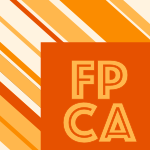 FPCA-1991-Fradet #detection #thread #using
FPCA-1991-Fradet #detection #thread #using- Syntactic Detection of Single-Threading Using Continuations (PF), pp. 241–258.
 POPL-1991-DubaHM #ml #type system
POPL-1991-DubaHM #ml #type system- Typing First-Class Continuations in ML (BFD, RH, DBM), pp. 163–173.
 POPL-1991-QueinnecS
POPL-1991-QueinnecS - A Dynamic Extent Control Operator for Partial Continuations (CQ, BPS), pp. 174–184.
 POPL-1991-SitaramF #modelling
POPL-1991-SitaramF #modelling- Modeling Continuations without Continuations (DS, MF), pp. 185–196.
 WSA-1991-Goudal #french
WSA-1991-Goudal #french- Une représentation abstraite des expressions et continuations en Scheme (FG), pp. 225–233.
 SOSP-1991-DravesBRD #communication #concurrent #operating system #thread #using
SOSP-1991-DravesBRD #communication #concurrent #operating system #thread #using- Using Continuations to Implement Thread Management and Communication in Operating Systems (RD, BNB, RFR, RWD), pp. 122–136.
 LFP-1990-KatzW #interactive
LFP-1990-KatzW #interactive- Continuing into the Future: On the Interaction of Futures and First-Class Continuations (MK, DW), pp. 176–184.
 LFP-1990-SitaramF #abstraction #modelling #reasoning
LFP-1990-SitaramF #abstraction #modelling #reasoning- Reasoning with Continuations II: Full Abstraction for Models of Control (DS, MF), pp. 161–175.
 PLDI-1990-HiebDB #representation
PLDI-1990-HiebDB #representation- Representing Control in the Presence of First-Class Continuations (RH, RKD, CB), pp. 66–77.
 CC-1990-Pettersson #generative #performance #semantics
CC-1990-Pettersson #generative #performance #semantics- Generating Efficient Code from Continuation Semantics (MP), pp. 165–178.
 PPoPP-1990-HiebD #concurrent
PPoPP-1990-HiebD #concurrent- Continuations and Concurrency (RH, RKD), pp. 128–136.
 PLDI-1989-JouvelotG #reasoning
PLDI-1989-JouvelotG #reasoning- Reasoning about Continuations with Control Effects (PJ, DKG), pp. 218–226.
 POPL-1989-AppelJ
POPL-1989-AppelJ - Continuation-Passing, Closure-Passing Style (AWA, TJ), pp. 293–302.
 CAAP-1989-BruinV #prolog #semantics
CAAP-1989-BruinV #prolog #semantics- Continuation Semantics for PROLOG with Cut (AdB, EPdV), pp. 178–192.
 LFP-1988-ClingerHO #implementation
LFP-1988-ClingerHO #implementation- Implementation Strategies for Continuations (WDC, AH, EO), pp. 124–131.
 LFP-1988-FelleisenWFD #semantics
LFP-1988-FelleisenWFD #semantics- Abstract Continuations: A Mathematical Semantics for Handling Full Jumps (MF, MW, DPF, BFD), pp. 52–62.
 LFP-1988-MeyerR
LFP-1988-MeyerR - Continuations May be Unreasonable (ARM, JGR), pp. 63–71.
 POPL-1988-JohnsonD
POPL-1988-JohnsonD - Stores and Partial Continuations as First-Class Objects in a Language and its Environment (GFJ, DD), pp. 158–168.
 POPL-1988-MontenyohlW #analysis #semantics
POPL-1988-MontenyohlW #analysis #semantics- Correct Flow Analysis in Continuation Semantics (MM, MW), pp. 204–218.
 PLDI-1987-Johnson #named
PLDI-1987-Johnson #named- GL — a denotational testbed with continuations and partial continuations as first-class objects (GFJ), pp. 165–176.
 ICLP-1986-Haynes86 #logic
ICLP-1986-Haynes86 #logic- Logic Continuations (CTH), pp. 671–685.
 LICS-1986-FelleisenFKD #reasoning
LICS-1986-FelleisenFKD #reasoning- Reasoning with Continuations (MF, DPF, EEK, BFD), pp. 131–141.
 LFP-1984-HaynesFW
LFP-1984-HaynesFW - Continuations and Coroutines (CTH, DPF, MW), pp. 293–298.
 ICALP-1979-SethiT #call-by #semantics
ICALP-1979-SethiT #call-by #semantics- Constructing Call-by-Value Continuation Semantics (RS, AT), pp. 556–570.
 VDM-1978-Jones78a #goto #semantics
VDM-1978-Jones78a #goto #semantics- Denotational Semantics of GOTO: An Exit Formulation and Its Relation to Continuations (CBJ), pp. 278–304.
 ICALP-1974-Reynolds #on the #semantics
ICALP-1974-Reynolds #on the #semantics- On the Relation between Direct and Continuation Semantics (JCR), pp. 141–156.
 SEFM-2019-BartocciMMMN #automation #modelling
SEFM-2019-BartocciMMMN #automation #modelling PEPM-2019-Lu #control flow #obfuscation
PEPM-2019-Lu #control flow #obfuscation VMCAI-2019-GermaneM #analysis #automaton
VMCAI-2019-GermaneM #analysis #automaton CIKM-2018-FerroLM0 #education #learning #rank
CIKM-2018-FerroLM0 #education #learning #rank PEPM-2018-AsaiU
PEPM-2018-AsaiU  POPL-2018-BowmanCRA
POPL-2018-BowmanCRA  CASE-2018-MaierUG #automation #implementation #multi #performance
CASE-2018-MaierUG #automation #implementation #multi #performance FSCD-2017-HillerstromLAS
FSCD-2017-HillerstromLAS  CIKM-2017-ShiLC #estimation #rank
CIKM-2017-ShiLC #estimation #rank PLDI-2017-MaurerDAJ #compilation
PLDI-2017-MaurerDAJ #compilation CASE-2017-NingHHG #3d #approach #process
CASE-2017-NingHHG #3d #approach #process TAP-2017-FazekasHSB #quantifier
TAP-2017-FazekasHSB #quantifier FSCD-2016-Blot #modelling
FSCD-2016-Blot #modelling GPCE-2016-PhilipsKMR #javascript
GPCE-2016-PhilipsKMR #javascript ICFP-2015-LeF #transaction
ICFP-2015-LeF #transaction RecSys-2015-JannachLK #generative #music
RecSys-2015-JannachLK #generative #music DAC-2015-WolfF #architecture #question #what
DAC-2015-WolfF #architecture #question #what CBSE-2014-BuresHP #architecture #modelling #product line #runtime
CBSE-2014-BuresHP #architecture #modelling #product line #runtime ICFP-2014-DownenA #composition #semantics
ICFP-2014-DownenA #composition #semantics ICML-c1-2014-LinX #adaptation #optimisation
ICML-c1-2014-LinX #adaptation #optimisation PEPM-2014-KerneisSH #named #performance #static analysis
PEPM-2014-KerneisSH #named #performance #static analysis PPDP-2014-DownenMAV #process
PPDP-2014-DownenMAV #process PPDP-2014-Ilik #normalisation #proving #tutorial
PPDP-2014-Ilik #normalisation #proving #tutorial SIGITE-2013-RutherfoordRZY #health
SIGITE-2013-RutherfoordRZY #health TLCA-2013-Schopp #interactive #on the
TLCA-2013-Schopp #interactive #on the ICFP-2013-DelbiancoN #algebra #hoare #reasoning
ICFP-2013-DelbiancoN #algebra #hoare #reasoning FDG-2013-Schoenau-FogLLS #game studies #perspective
FDG-2013-Schoenau-FogLLS #game studies #perspective CSL-2013-Materzok #axiom
CSL-2013-Materzok #axiom ICLP-J-2013-SchrijversDDW #prolog
ICLP-J-2013-SchrijversDDW #prolog FLOPS-2012-TanakaK #call-by
FLOPS-2012-TanakaK #call-by SEKE-2012-LiLCZJZ #adaptation #self #verification
SEKE-2012-LiLCZJZ #adaptation #self #verification SEKE-2012-ZhuLLCZJ #difference #logic #using #verification
SEKE-2012-ZhuLLCZJ #difference #logic #using #verification SIGIR-2012-AgichteinWDB #comprehension #predict
SIGIR-2012-AgichteinWDB #comprehension #predict PPDP-2012-Thielecke #functional #parsing #recursion #semantics
PPDP-2012-Thielecke #functional #parsing #recursion #semantics SAC-2012-BookGB #web
SAC-2012-BookGB #web ICFP-2011-AhmedB #multi #semantics
ICFP-2011-AhmedB #multi #semantics ICFP-2011-MaterzokB #type system
ICFP-2011-MaterzokB #type system DiGRA-2011-Schoenau-Fog #game studies #process
DiGRA-2011-Schoenau-Fog #game studies #process PEPM-2011-VardoulakisS #multi #stack
PEPM-2011-VardoulakisS #multi #stack PPDP-2011-BiernackaBL #type system
PPDP-2011-BiernackaBL #type system SAC-2011-ParisiniM #branch #slicing
SAC-2011-ParisiniM #branch #slicing DATE-2011-LiuS #optimisation #performance
DATE-2011-LiuS #optimisation #performance ILC-2010-YasugiKHU #recursion
ILC-2010-YasugiKHU #recursion OOPSLA-2010-McCarthy
OOPSLA-2010-McCarthy  PPDP-2010-AsaiK #functional #virtual machine
PPDP-2010-AsaiK #functional #virtual machine DAC-2010-Lee
DAC-2010-Lee  FoSSaCS-2010-EggerMS #calculus
FoSSaCS-2010-EggerMS #calculus FoSSaCS-2010-Saurin #call-by
FoSSaCS-2010-Saurin #call-by LICS-2010-Zeilberger #logic
LICS-2010-Zeilberger #logic ICFP-2009-McCarthy #automation #composition #rest #web
ICFP-2009-McCarthy #automation #composition #rest #web ICFP-2009-RompfMO #implementation #polymorphism
ICFP-2009-RompfMO #implementation #polymorphism CC-2009-BieniusaT #how #monad
CC-2009-BieniusaT #how #monad FLOPS-2008-KameyamaY
FLOPS-2008-KameyamaY  FLOPS-2008-Kobayashi08a #backtracking
FLOPS-2008-Kobayashi08a #backtracking ICFP-2008-Ley-WildFA #compilation #self #source code
ICFP-2008-Ley-WildFA #compilation #self #source code PADL-2008-GuzmanCHSR #implementation
PADL-2008-GuzmanCHSR #implementation POPL-2008-HerbelinG #approach #call-by
POPL-2008-HerbelinG #approach #call-by TLCA-2007-KiselyovS #type system
TLCA-2007-KiselyovS #type system TLCA-2007-SantoMP #calculus #normalisation
TLCA-2007-SantoMP #calculus #normalisation ICFP-2007-Kennedy #compilation
ICFP-2007-Kennedy #compilation SAC-2007-YuY #distributed #workflow
SAC-2007-YuY #distributed #workflow ICML-2006-ChapelleCZ
ICML-2006-ChapelleCZ  PLDI-2006-ShiversM #composition #transducer
PLDI-2006-ShiversM #composition #transducer ICFP-2005-PettyjohnCMKF #stack
ICFP-2005-PettyjohnCMKF #stack PADL-2005-WangGL #code generation #logic #semantics #towards
PADL-2005-WangGL #code generation #logic #semantics #towards ICLP-2005-SneyersSD #optimisation
ICLP-2005-SneyersSD #optimisation FLOPS-2004-Hasegawa #call-by #linear #semantics
FLOPS-2004-Hasegawa #call-by #linear #semantics ICFP-2004-AriolaHS
ICFP-2004-AriolaHS  ESOP-2004-Thielecke #call-by #morphism #polymorphism
ESOP-2004-Thielecke #call-by #morphism #polymorphism CSL-2004-Kameyama #axiom
CSL-2004-Kameyama #axiom ICFP-2003-KameyamaH #axiom
ICFP-2003-KameyamaH #axiom LOPSTR-2003-WangG #horn clause #semantics
LOPSTR-2003-WangG #horn clause #semantics POPL-2003-Thielecke
POPL-2003-Thielecke  SAS-2003-Thiemann #partial evaluation
SAS-2003-Thiemann #partial evaluation SAC-2003-DhoogeGKMR #matlab #named
SAC-2003-DhoogeGKMR #matlab #named FoSSaCS-2003-Laird #game studies #semantics
FoSSaCS-2003-Laird #game studies #semantics FLOPS-2002-Hasegawa #linear #monad #λ-calculus
FLOPS-2002-Hasegawa #linear #monad #λ-calculus OOPSLA-2002-Manolescu #workflow
OOPSLA-2002-Manolescu #workflow PEPM-2002-BartheU #induction
PEPM-2002-BartheU #induction DATE-2002-BrachtendorfLLMF #using
DATE-2002-BrachtendorfLLMF #using ESOP-2002-Laird #exception
ESOP-2002-Laird #exception FoSSaCS-2002-DanvyN #first-order
FoSSaCS-2002-DanvyN #first-order CSL-2002-Ogata #proving
CSL-2002-Ogata #proving ESOP-2001-ZdancewicM #data flow
ESOP-2001-ZdancewicM #data flow ICFP-2000-DamianD #program analysis
ICFP-2000-DamianD #program analysis ICFP-2000-Queinnec #web
ICFP-2000-Queinnec #web LOPSTR-2000-JahierDR #modelling #prolog #semantics #specification
LOPSTR-2000-JahierDR #modelling #prolog #semantics #specification LOPSTR-J-2000-JahierDR #modelling #prolog #semantics #specification
LOPSTR-J-2000-JahierDR #modelling #prolog #semantics #specification PPDP-2000-TodoranP #logic programming #parallel
PPDP-2000-TodoranP #logic programming #parallel ESOP-2000-Danvy #formal method #implementation
ESOP-2000-Danvy #formal method #implementation ESOP-2000-LawallM
ESOP-2000-LawallM  ESOP-2000-Thielecke #exception #on the
ESOP-2000-Thielecke #exception #on the ICALP-1999-RieckeT
ICALP-1999-RieckeT  ESOP-1999-DanvyY
ESOP-1999-DanvyY  ICFP-1998-SobelF
ICFP-1998-SobelF  LICS-1997-HofmannS #modelling #λ-calculus #μ-calculus
LICS-1997-HofmannS #modelling #λ-calculus #μ-calculus PLDI-1996-BruggemanWD #representation
PLDI-1996-BruggemanWD #representation TAPSOFT-1995-Moreau #parallel
TAPSOFT-1995-Moreau #parallel ILPS-1995-TarauDF #backtracking #linear
ILPS-1995-TarauDF #backtracking #linear LFP-1994-Queinnec #locality
LFP-1994-Queinnec #locality LOPSTR-1994-TarauD #first-order #logic programming
LOPSTR-1994-TarauD #first-order #logic programming PLDI-1994-SabryF #analysis #data flow #question
PLDI-1994-SabryF #analysis #data flow #question PLILP-1994-MoreauQ #difference
PLILP-1994-MoreauQ #difference POPL-1994-HatcliffD
POPL-1994-HatcliffD  SAC-1994-BosschereT #performance #prolog
SAC-1994-BosschereT #performance #prolog ESOP-1994-Moreau #automaton #evaluation #functional #parallel #source code
ESOP-1994-Moreau #automaton #evaluation #functional #parallel #source code ESOP-1994-MuckS #functional #logic #semantics
ESOP-1994-MuckS #functional #logic #semantics ILPS-1994-Lindgren #prolog
ILPS-1994-Lindgren #prolog ICDAR-1993-BillawalaHP #image
ICDAR-1993-BillawalaHP #image PLDI-1993-FlanaganSDF #compilation
PLDI-1993-FlanaganSDF #compilation POPL-1993-HarperL #morphism #polymorphism
POPL-1993-HarperL #morphism #polymorphism POPL-1993-LawallD
POPL-1993-LawallD  POPL-1993-Leroy #morphism #polymorphism
POPL-1993-Leroy #morphism #polymorphism Best-of-PLDI-1993-FlanaganSDF93a #compilation
Best-of-PLDI-1993-FlanaganSDF93a #compilation ICLP-1993-BrissetR #prolog
ICLP-1993-BrissetR #prolog ILPS-1993-Tarau #performance #source code
ILPS-1993-Tarau #performance #source code LFP-1992-DanvyL
LFP-1992-DanvyL  LFP-1992-SabryF #reasoning #source code
LFP-1992-SabryF #reasoning #source code PLILP-1992-Tarau #named #prolog
PLILP-1992-Tarau #named #prolog POPL-1992-Filinski #linear
POPL-1992-Filinski #linear IWMM-1992-Tarau #memory management #prolog
IWMM-1992-Tarau #memory management #prolog FPCA-1991-Fradet #detection #thread #using
FPCA-1991-Fradet #detection #thread #using POPL-1991-DubaHM #ml #type system
POPL-1991-DubaHM #ml #type system POPL-1991-QueinnecS
POPL-1991-QueinnecS  POPL-1991-SitaramF #modelling
POPL-1991-SitaramF #modelling WSA-1991-Goudal #french
WSA-1991-Goudal #french SOSP-1991-DravesBRD #communication #concurrent #operating system #thread #using
SOSP-1991-DravesBRD #communication #concurrent #operating system #thread #using LFP-1990-KatzW #interactive
LFP-1990-KatzW #interactive LFP-1990-SitaramF #abstraction #modelling #reasoning
LFP-1990-SitaramF #abstraction #modelling #reasoning PLDI-1990-HiebDB #representation
PLDI-1990-HiebDB #representation CC-1990-Pettersson #generative #performance #semantics
CC-1990-Pettersson #generative #performance #semantics PPoPP-1990-HiebD #concurrent
PPoPP-1990-HiebD #concurrent PLDI-1989-JouvelotG #reasoning
PLDI-1989-JouvelotG #reasoning POPL-1989-AppelJ
POPL-1989-AppelJ  CAAP-1989-BruinV #prolog #semantics
CAAP-1989-BruinV #prolog #semantics LFP-1988-ClingerHO #implementation
LFP-1988-ClingerHO #implementation LFP-1988-FelleisenWFD #semantics
LFP-1988-FelleisenWFD #semantics LFP-1988-MeyerR
LFP-1988-MeyerR  POPL-1988-JohnsonD
POPL-1988-JohnsonD  POPL-1988-MontenyohlW #analysis #semantics
POPL-1988-MontenyohlW #analysis #semantics PLDI-1987-Johnson #named
PLDI-1987-Johnson #named ICLP-1986-Haynes86 #logic
ICLP-1986-Haynes86 #logic LICS-1986-FelleisenFKD #reasoning
LICS-1986-FelleisenFKD #reasoning LFP-1984-HaynesFW
LFP-1984-HaynesFW  ICALP-1979-SethiT #call-by #semantics
ICALP-1979-SethiT #call-by #semantics VDM-1978-Jones78a #goto #semantics
VDM-1978-Jones78a #goto #semantics ICALP-1974-Reynolds #on the #semantics
ICALP-1974-Reynolds #on the #semantics











